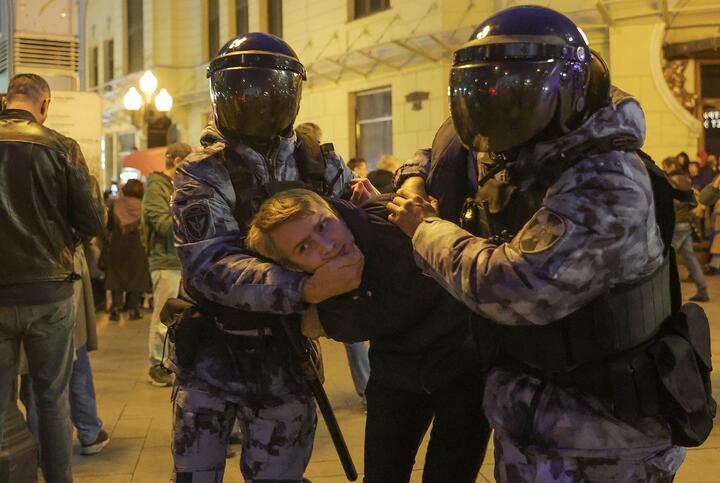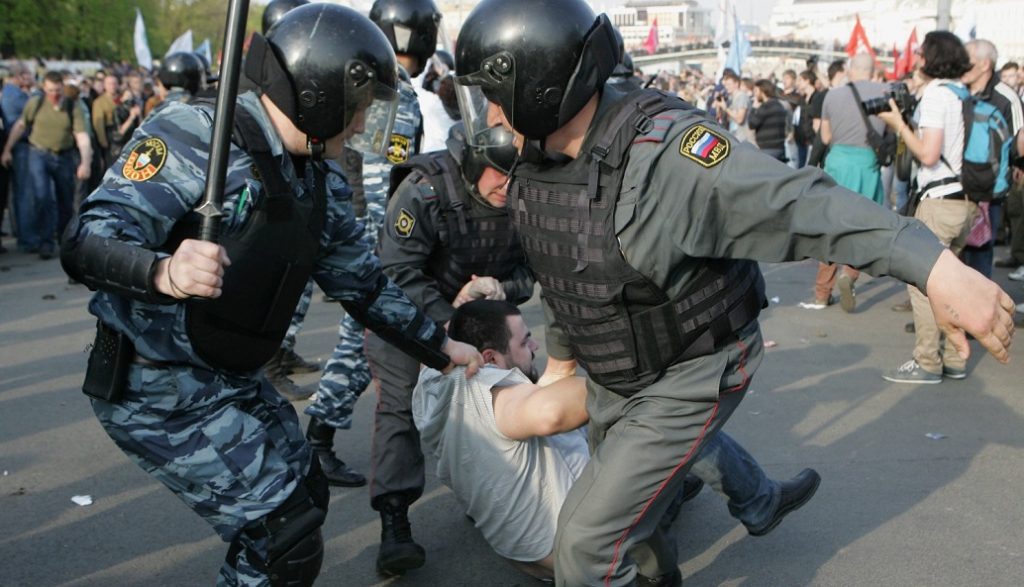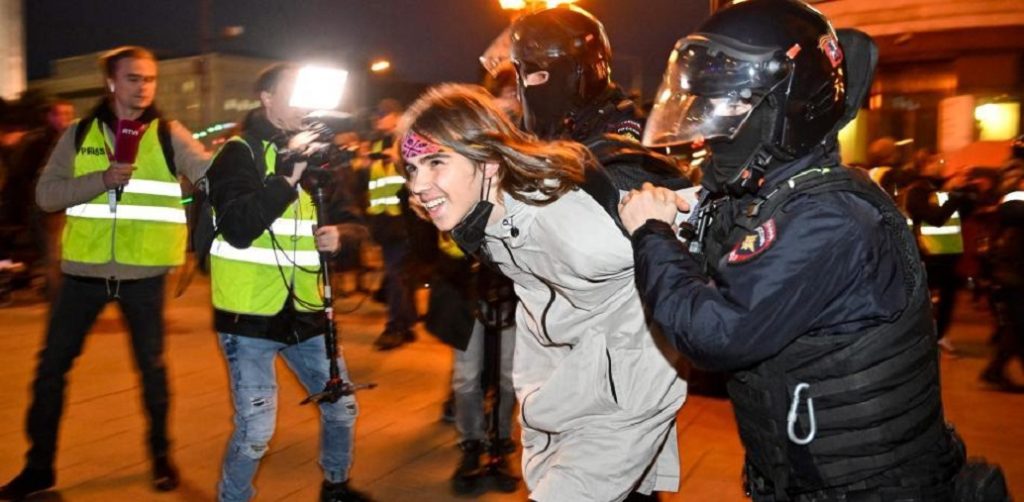Corresponsal
Compartimos un informe realizado el 22 de septiembre por nuestro corresponsal sobre las medidas adoptadas por Putin ante los fracasos militares en Ucrania que incluyen: la movilización de 300.000 reservistas, la usurpación de territorios mediante Referéndums ilegítimos y la amenaza de utilizar armas nucleares. Ante esta realidad, las manifestaciones volvieron a ganar las calles de Moscú, San Petersburgo y otras ciudades de Rusia, acciones a las cuales el régimen autoritario respondió con represión y centenares de encarcelamientos. El grito de “No a la guerra” se hace sentir cada vez con mayor intensidad. El testimonio que publicamos a continuación se suma al ya realizado desde Ucrania en la nota “Resistencia triunfante en la región de Járkiv”.
“Situación en Rusia: Putin anunció movilización”
“La contraofensiva de septiembre de las Fuerzas Armadas de Ucrania creó una amenaza para la invasión rusa de Ucrania. La región de Járkiv fue liberada. Las tropas rusas partieron hacia la región de Donetsk para «reagruparse», como dice la propaganda oficial. En esta guerra, Putin ha apostado todo lo que tiene: reemplazó su autocracia con una dictadura, destruyó por completo a la oposición, cortó los lazos con Occidente y condenó al país al declive económico. Solo el éxito en esta guerra podrá mantener su autoridad a los ojos de los partidarios entre los rusos y, lo que es más importante, a los ojos de la élite política rusa. Este es el objetivo principal de la guerra: mantenerse en el poder. Por lo tanto, la movilización es un paso lógico en su política. Putin llegará hasta el final en esta guerra.
Hace unas semanas, apareció en Internet un video donde el amigo de Putin, el Sr. Prigozhin, está en prisión y recluta prisioneros para que vayan al frente a cambio de un indulto. Con la amenaza de ser fusilados por rendirse o huir (al mismo tiempo, la pena de muerte está prohibida en Rusia).
También había información en Internet de que jóvenes soldados rusos estaban siendo enviados para un asalto, mientras que los soldados del presidente checheno Kadyrov los seguían por la espalda y disparaban a todos los que se retiraban. Para la élite de Rusia ya no hay leyes, y la gente para ellos son esclavos. La propaganda y el propio Putin llamaron a esta movilización «parcial», pero la sociedad entiende que será ciega y al por mayor: a quien encuentren se lo llevarán.



Unos días antes de la adopción de la ley de movilización, se hicieron preparativos para: 1- La aprobación de reformas al código penal. Se adoptaron artículos y penas relativas a la guerra (deserción, desobediencia a las órdenes, rendición, etc.) y 2- La preparación acelerada de Referéndums de adhesión a Rusia en los territorios ocupados. El segundo punto les permitirá decirle al pueblo de Rusia que “ahora estamos defendiendo nuestros propios territorios”. Esto es muy importante, porque la propaganda estatal durante muchos años creó el mito de que «Rusia nunca ha atacado a nadie». Además, este artículo permitirá atraer reclutas a los «territorios rusos» (chicos de 18 a 20 años que acaban de comenzar a entrenar).
El pueblo recibió la movilización con alarma. Quien antes pensaba que la guerra no le tocaría, se asustó. Pero la mayoría de la oposición abandonó Rusia en los primeros meses de la guerra, por lo que las manifestaciones contra la movilización fueron pocas y brutalmente reprimidas (alrededor de 300 personas salieron en Moscú). Ahora los rusos están intimidados y no sienten la ayuda de Europa (11 países se han negado a otorgar visas a los rusos). La gente tiene miedo de la violencia en el país y no sabe a dónde recurrir. La situación es muy difícil.
Los hombres detenidos en mítines reciben citaciones para ser enviados al frente al día siguiente. La oposición rusa está fragmentada. Por ejemplo, los partidarios de Navalny en su discurso de ayer avalaron acciones drásticas, como incendiar puntos de concentración militar. Pero es demasiado tarde, porque todos los que pudieron hacer esto se han ido o están en prisión. Había que radicalizar la protesta antes, antes de la declaración de guerra (yo personalmente recuerdo que en los mítines de Navalny, si salías a la calzada o llamabas a resistir a la policía, te llamaban provocador e intentaban extraditar a la policía). El enfoque liberal de los mítines fracasó. Ahora hay activistas radicales y grupos que están tratando de resistir directamente la guerra: dañan las líneas ferroviarias a unidades militares y almacenes, detienen trenes con equipo militar e incendian puntos de reunión militar. Su lucha es importante y verdadera, pero todavía poca en número”.




